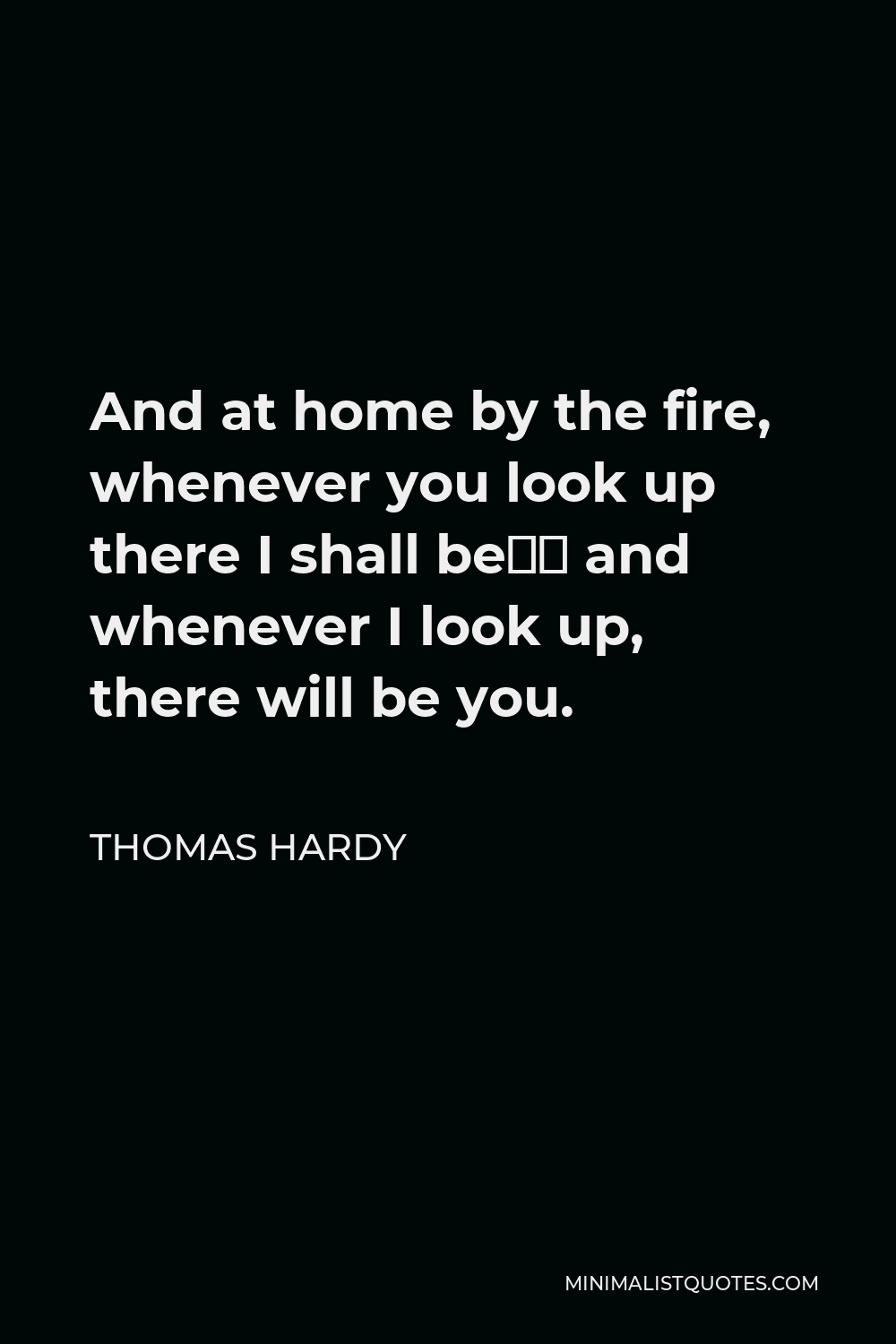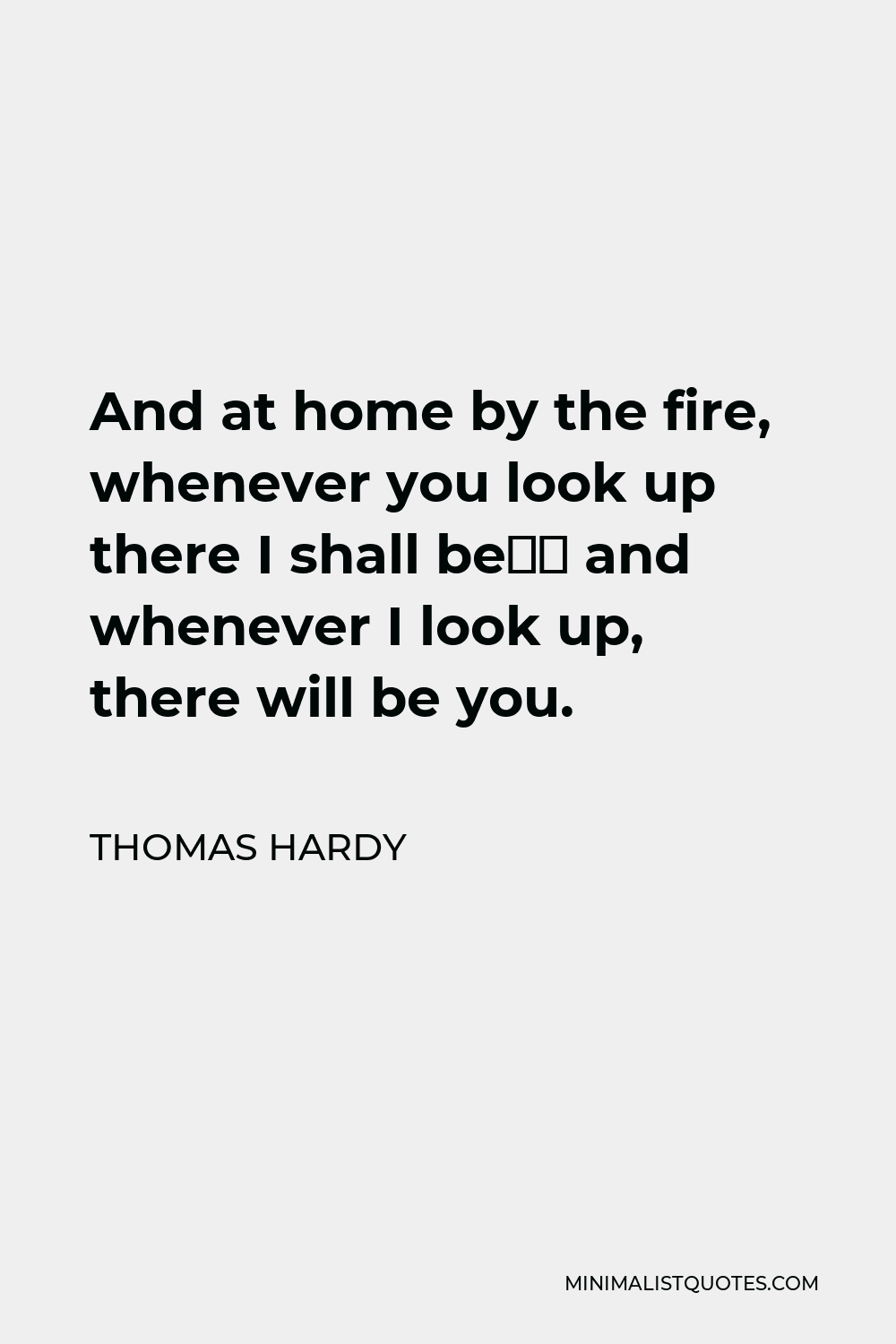You concede nothing to me and I have to concede everything to you.
THOMAS HARDYAnd at home by the fire, whenever you look up there I shall be— and whenever I look up, there will be you.
More Thomas Hardy Quotes
-





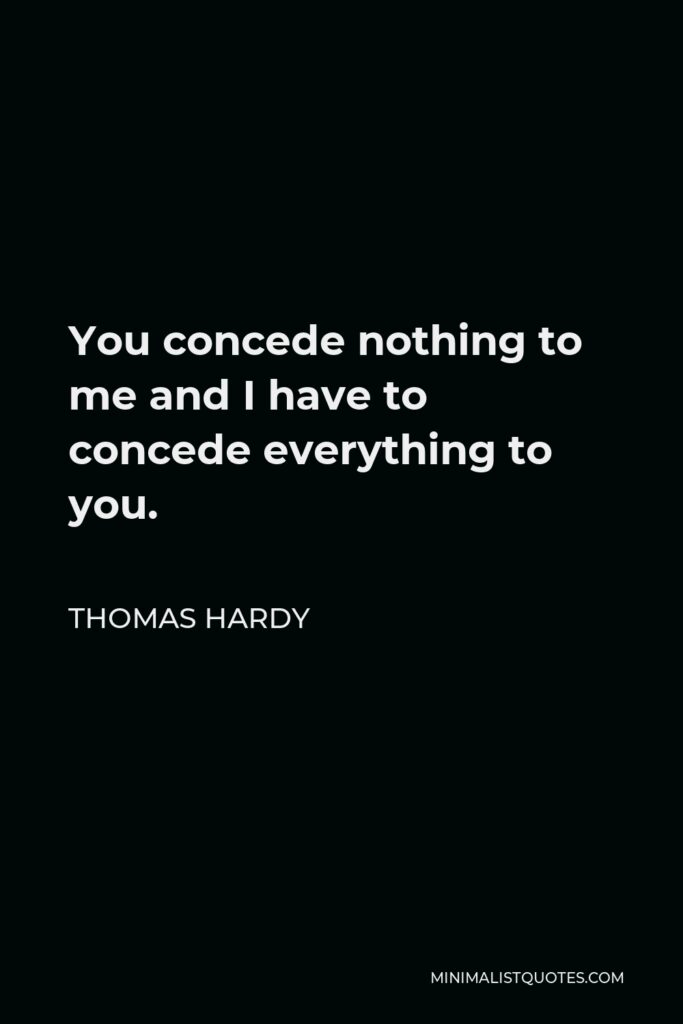

-





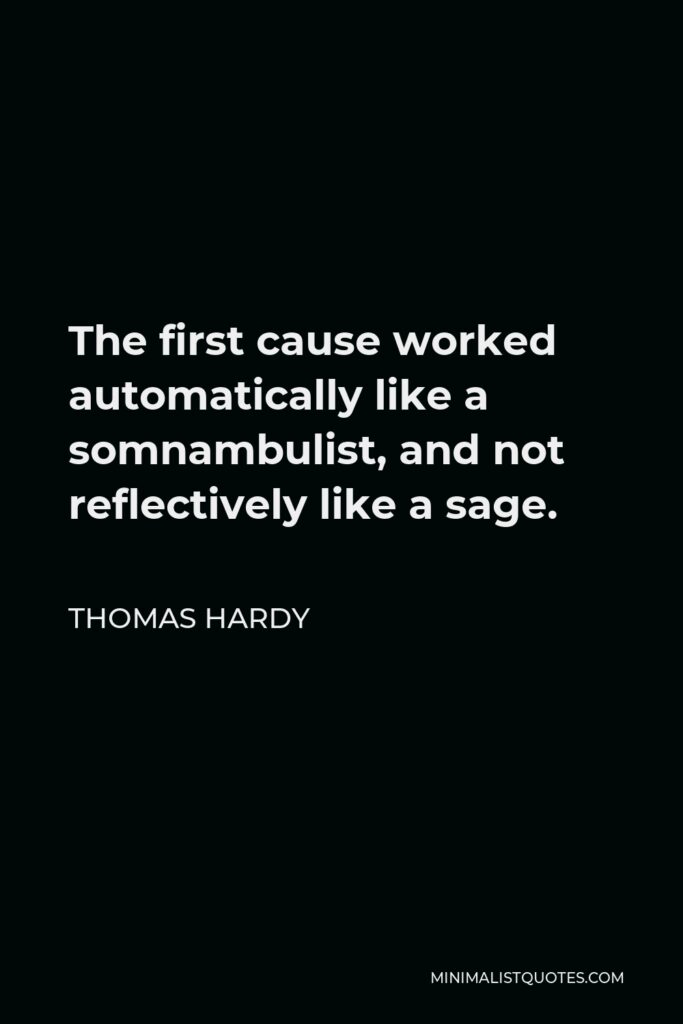

The first cause worked automatically like a somnambulist, and not reflectively like a sage.
THOMAS HARDY -







That one true heart was left behind! What feeling do we ever find, to equal among human kind, a dog’s fidelity!
THOMAS HARDY -







Some folk want their luck buttered.
THOMAS HARDY -





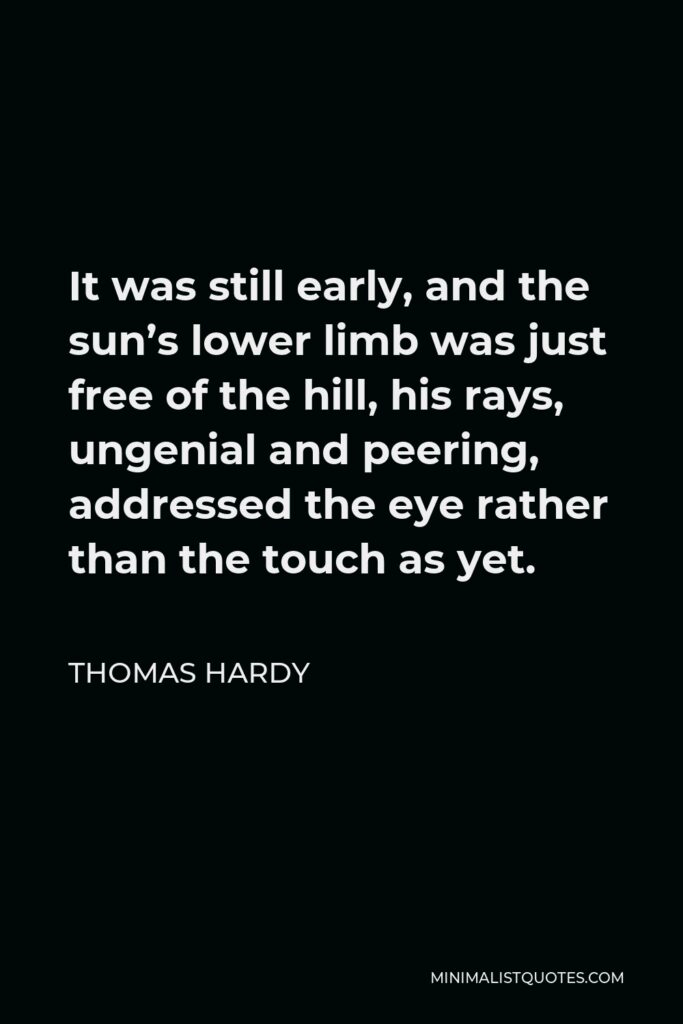

It was still early, and the sun’s lower limb was just free of the hill, his rays, ungenial and peering, addressed the eye rather than the touch as yet.
THOMAS HARDY -





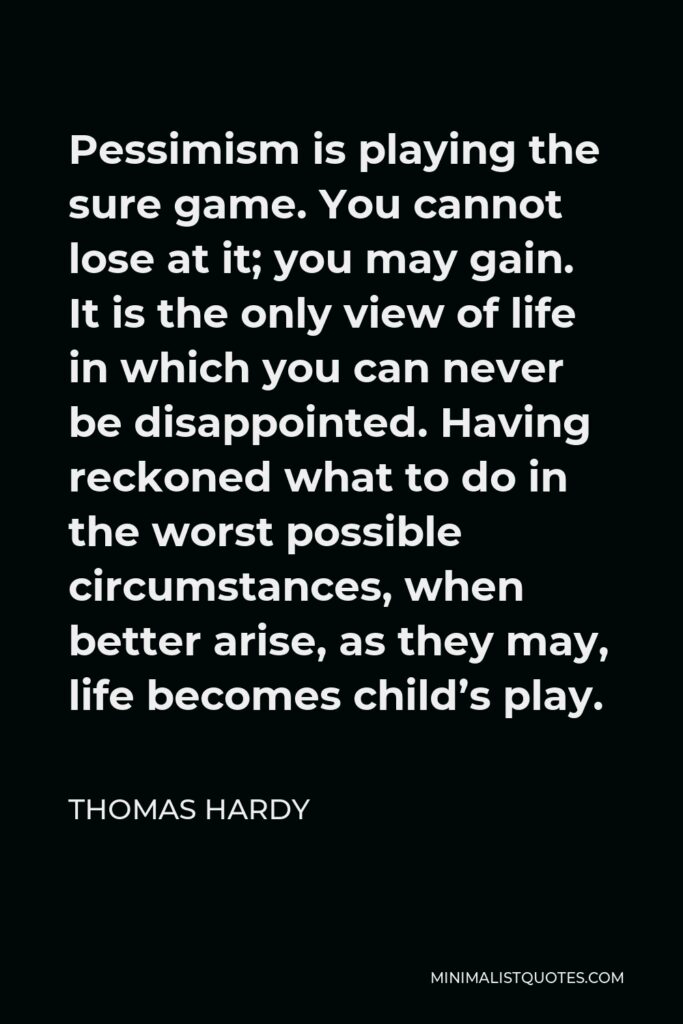

Pessimism is playing the sure game. You cannot lose at it; you may gain. It is the only view of life in which you can never be disappointed. Having reckoned what to do in the worst possible circumstances, when better arise, as they may, life becomes child’s play.
THOMAS HARDY -





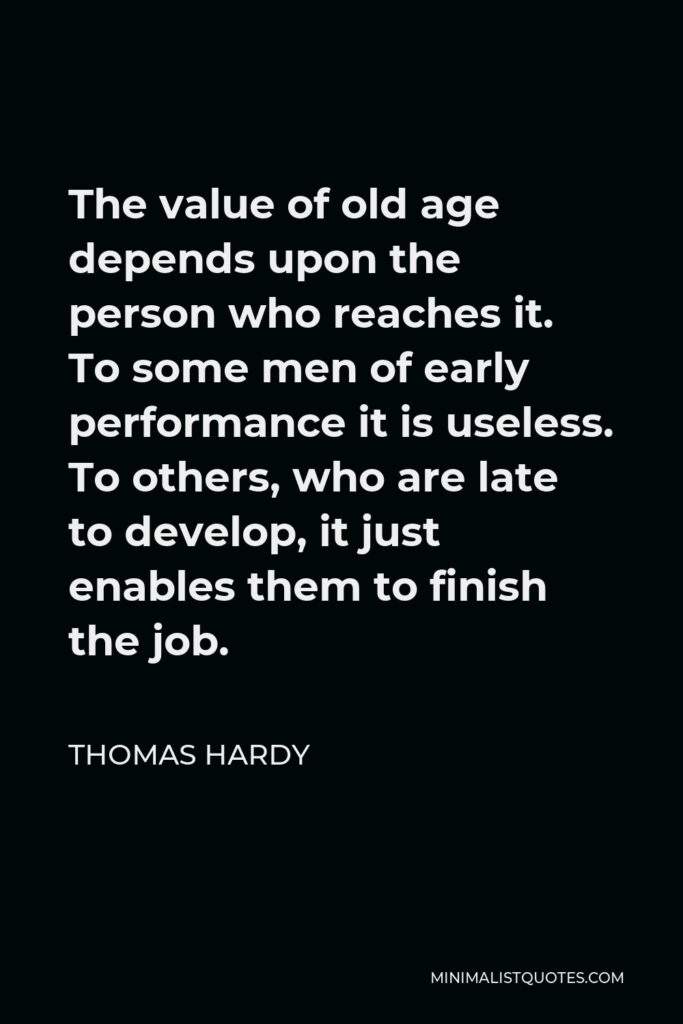

The value of old age depends upon the person who reaches it. To some men of early performance it is useless. To others, who are late to develop, it just enables them to finish the job.
THOMAS HARDY -







If a path to the better there be, it begins with a full look at the worst.
THOMAS HARDY -





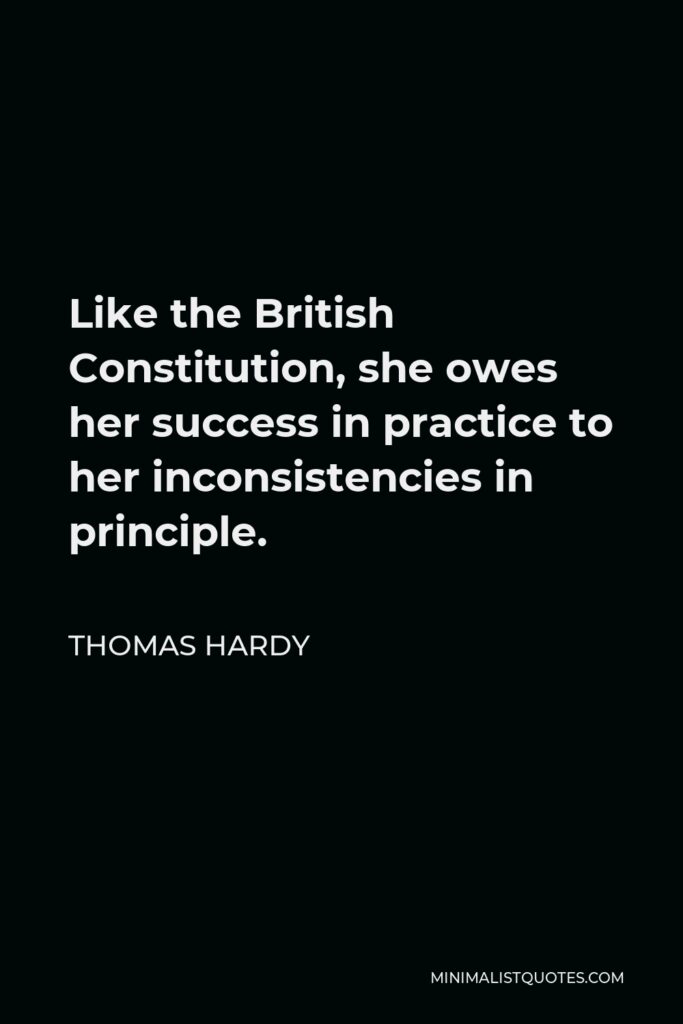

Like the British Constitution, she owes her success in practice to her inconsistencies in principle.
THOMAS HARDY -







Do not do an immoral thing for moral reasons.
THOMAS HARDY -







Love is a possible strength in an actual weakness.
THOMAS HARDY -





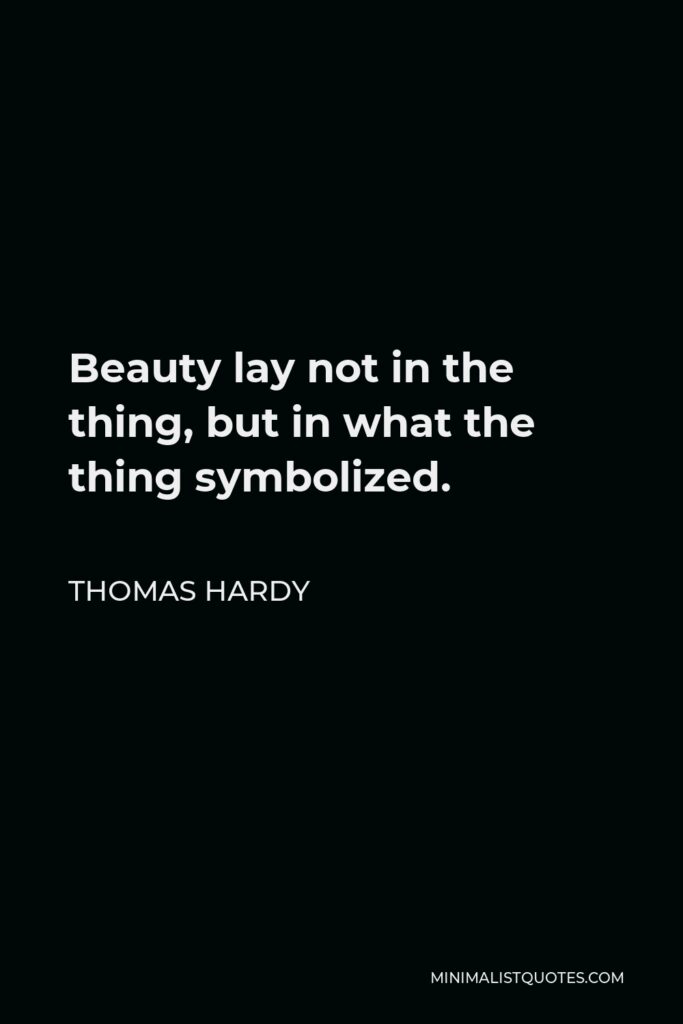

Beauty lay not in the thing, but in what the thing symbolized.
THOMAS HARDY -







Some women’s love of being loved is insatiable; and so, often, is their love of loving; and in the last case they may find that they can’t give it continuously to the chamber-officer appointed by the bishop’s license to receive it.
THOMAS HARDY -







A lover without indiscretion is no lover at all.
THOMAS HARDY -





![Thomas Hardy Quote - The perfect woman, you see [is] a working-woman; not an idler; not a fine lady; but one who [uses] her hands and her head and her heart for the good of others.](https://minimalistquotes.com/wp-content/uploads/2021/10/the-perfect-woman-you-see-is-a-working-woman-not-a-683x1024.jpg)

The perfect woman, you see [is] a working-woman; not an idler; not a fine lady; but one who [uses] her hands and her head and her heart for the good of others.
THOMAS HARDY -







Time changes everything except something within us which is always surprised by change.
THOMAS HARDY
